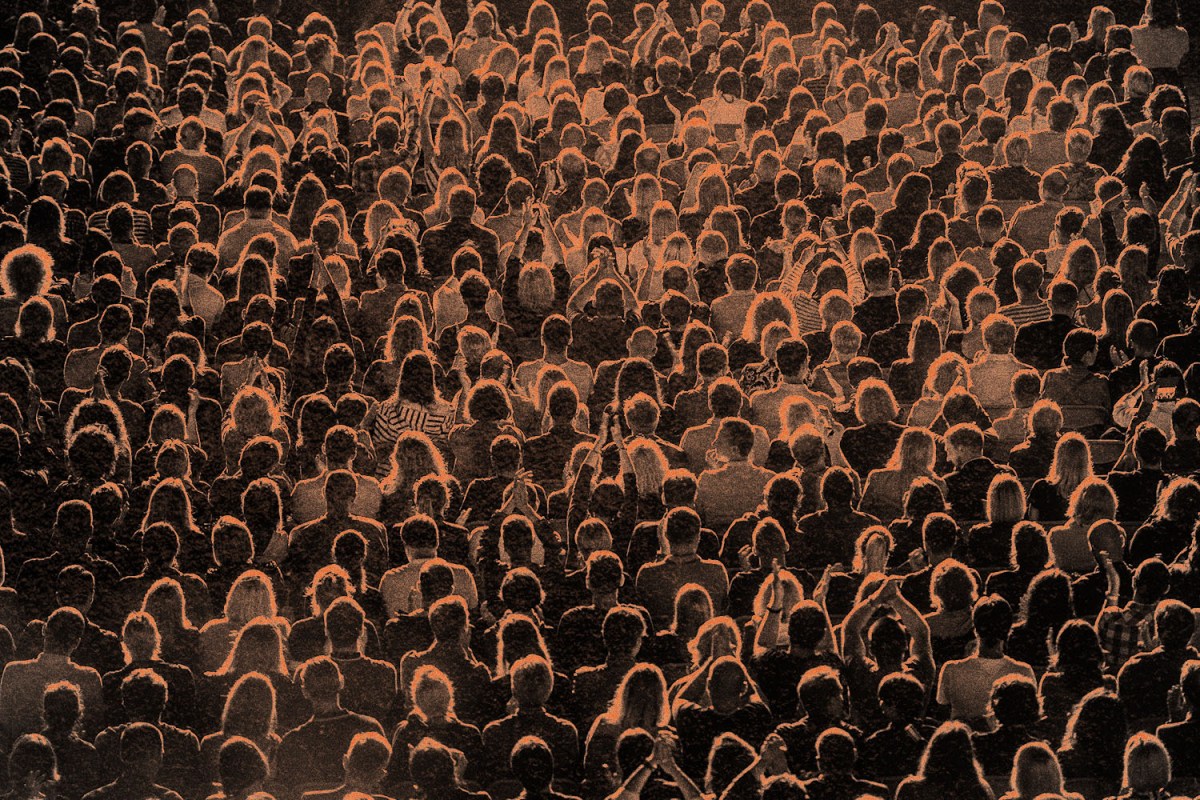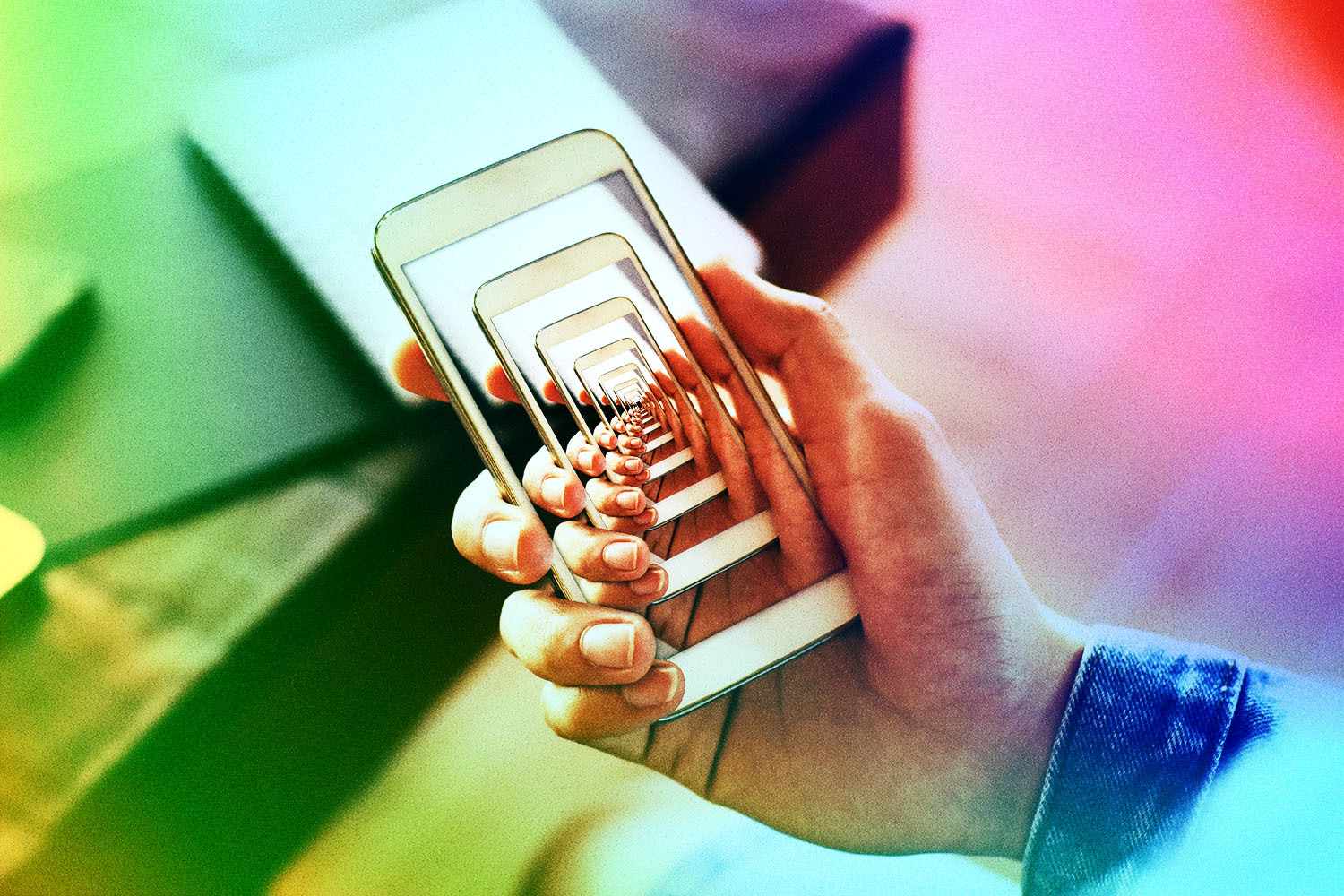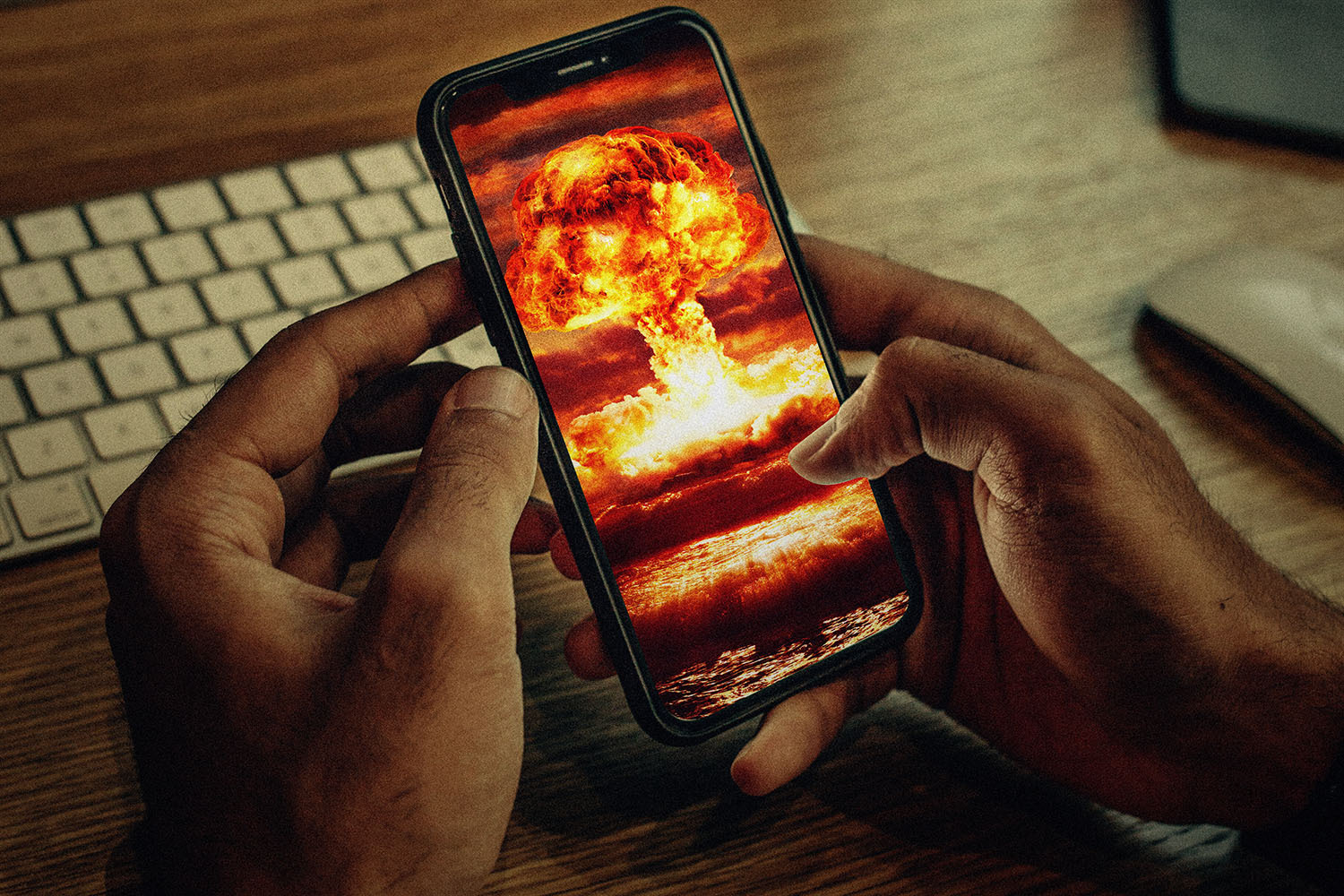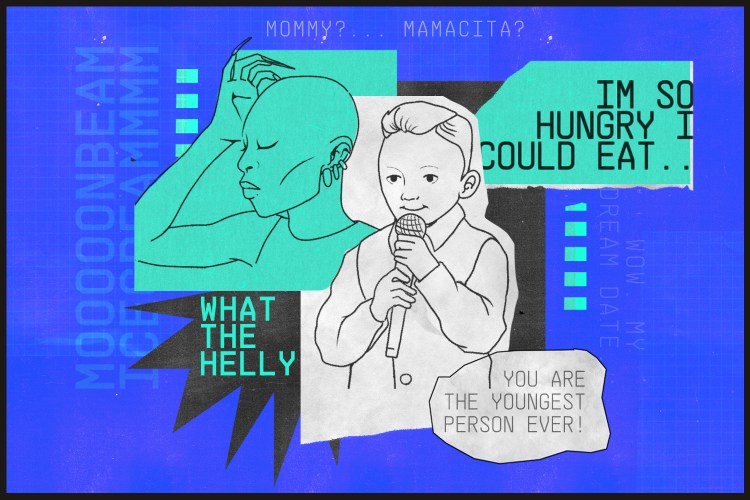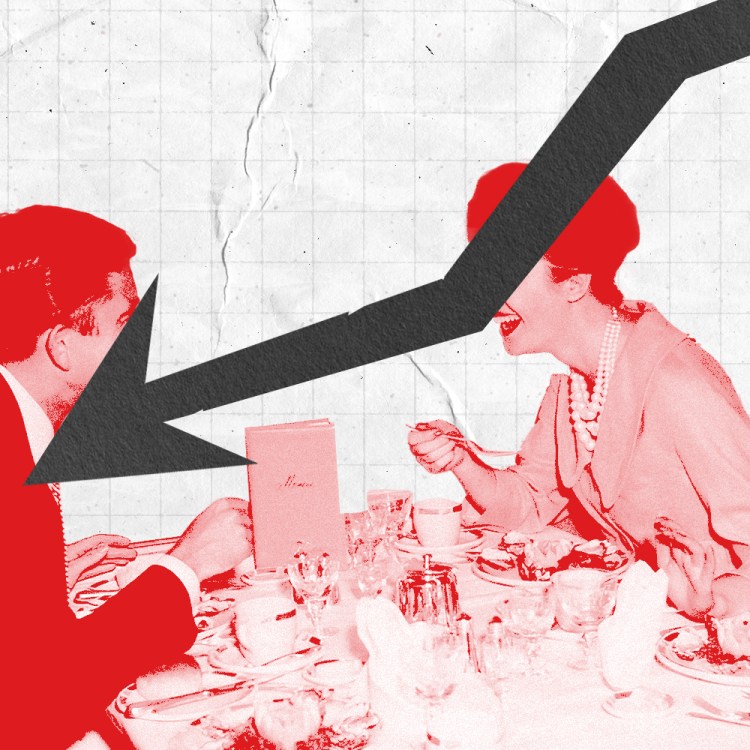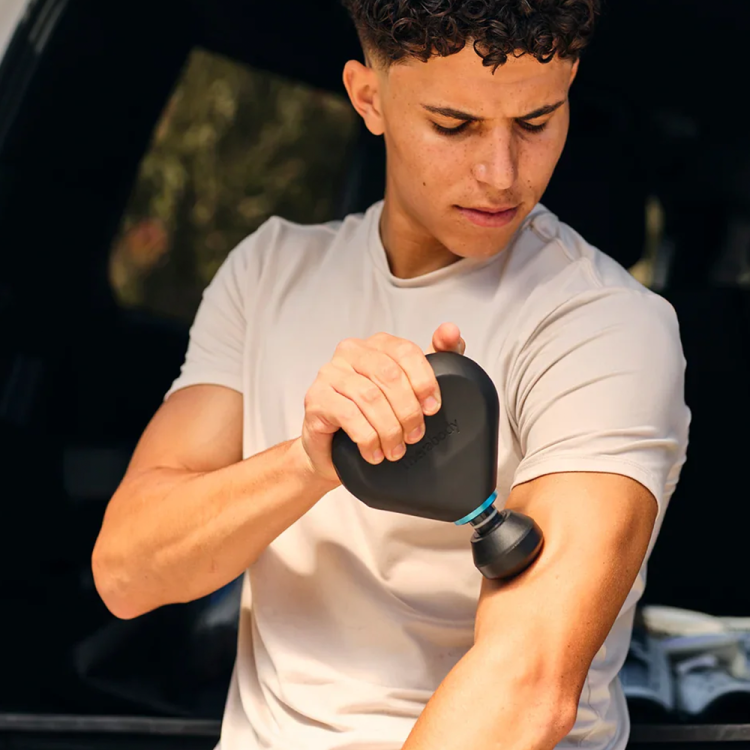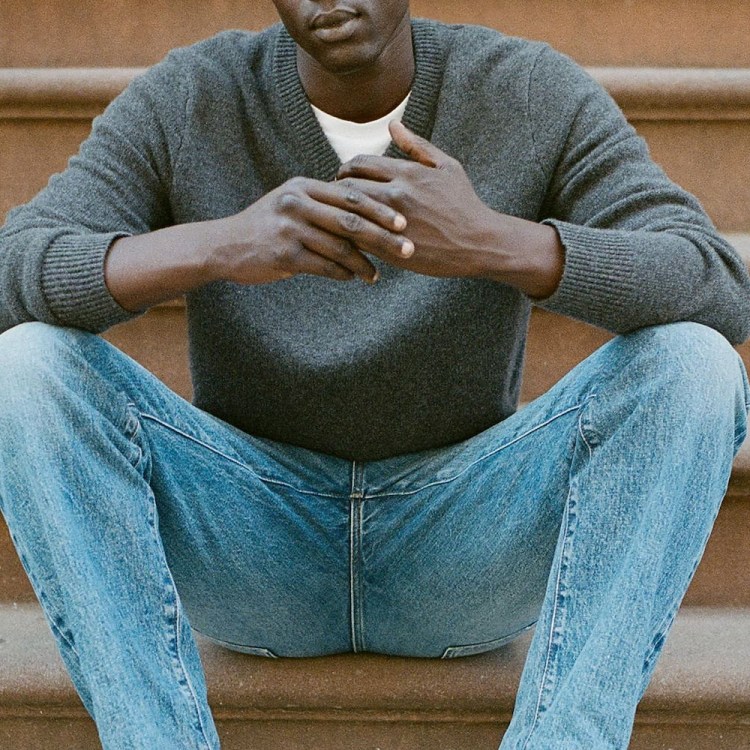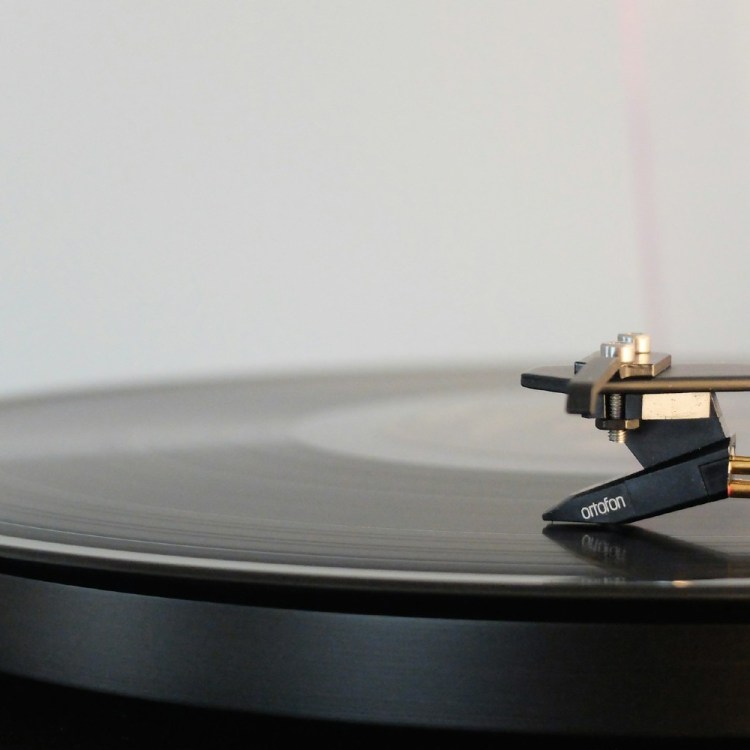At some point this year — probably June or July, according to most state legislators — coronavirus restrictions will ease and we will all re-emerge, like bears from their slumber, into polite society. To help you readjust, we’ll be sharing some advice on grooming, fitness, getting dressed in something besides sweatpants (but also sweatpants), how to manage your stress and mental health, dating, concert and bar etiquette, and more.
With more than 29% of the U.S. population now fully vaccinated and vaccines available to all residents over the age of 16, signs of a post-pandemic life are emerging. Per the CDC, those fully vaccinated can now safely go maskless outdoors, socialize inside with other fully vaccinated people and travel within the U.S. New York City is already planning its “summer of hedonism” after Mayor Bill de Blasio announced last week the city would be operating at full capacity by July 1st. Rejoice! Packed bars, eating indoors, sweating in gyms and some much-needed vacations might finally be in sight. So why do you still feel apprehensive, apathetic or maybe even downright terrified about reentering society?
Over a year into the pandemic, our brains are all fucked up; you might be experiencing intense burnout or feelings of aimlessness and futility. Staying as far away from crowds and social gatherings as possible could have triggered a new fear of public spaces. Even if you’re fully vaccinated, jumping back into society doesn’t sound as enticing as it ought to be, and the thought of returning might have you riddled with anxiety.
Rest assured you’re not alone — many are struggling with the idea of returning to “normal,” whatever that will look like. According to a survey released last month by the American Psychological Association, 48% of fully vaccinated adults still feel “uneasy” about returning to in-person interactions once the pandemic is over.
Karen Cassiday, a past president of the Anxiety and Depression Association of America and Clinical Psychologist and an Assistant Clinical Professor at the Rosalind Franklin Medical School, tells InsideHook she sees patients with a wide range of concerns about life post-pandemic. Despite being fully vaccinated, some are still worried about catching the virus, particularly new strains, and spreading it to loved ones; others find having to re-learn how to socialize nerve-wracking. Some are even anxious about returning to the gym after gaining weight during the pandemic, and refuse to go back again until they “get in better shape.”
“I’ve been trying to say, ‘It’s not just you. It’s all of us.’ Very few of us were able to have this dream pandemic life, where all we could do is work out and eat super nutritious foods and not be stressed,” says Cassiday.
And for those who have struggled with past social anxiety, agoraphobia or other anxiety disorders, the prolonged stress of the pandemic might have revivified an old problem, explains Cassiday. “We’ve been seeing a lot of people that have been doing really well and then the pandemic just busted loose their worry or their anxiety about other things. Their performance anxiety. Their perfectionism. They’re coming back to treatment and they’re finding everything just feels hard,” she says. “We’ve been in an environment of sameness. It really is more tiring. People are kind of feeling depleted and then are doing these new things that feel awkward.”
The good news is you can recover from any anxiety, worry or apathy you might be feeling. Of course, we’re still in the throes of the pandemic. A lot of uncertainty still prevails, and all we can really do is adhere to CDC guidelines and be respectful of our own boundaries, notes Saba Harouni Lurie, a Licensed Marriage and Family Therapist.
“If you are comfortable with certain activities now and not with others, even if the people around you are, maybe that’s okay. The transition to a post-pandemic world will not be immediate, and we don’t have to transition immediately, either,” she says.
Still, if you’re concerned about how you’re going to get through the great “reopening,” here are a few tips and practices to stay mindful of.
Don’t Avoid the Things You Fear
It can be tough, and will be, but the first step to mitigate anxiety or fear surrounding public spaces or social situations is to immerse yourself in them. “Any time you avoid something, whether it’s deliberate avoidance, your anxiety makes you avoid it or it’s imposed avoidance like the pandemic caused, you’re likely to find it anxiety-provoking when you do it again,” says Cassiday. “You need to remember that the cure for that is exposure. Meaning, ‘I faced this situation I fear and I stay in it until I can feel less anxiety. I show myself, I don’t have to avoid it. I allow myself to realize I can master this.’”
It’s Going to Take Practice
You might not be used to socializing with people in person, or working in an office, driving on busy roads or hanging with people who aren’t in your pandemic pod. Reminding yourself it’s going to take time and practice — and that that’s totally okay — is key.
“[You need] to realize, ‘The more I do it, the easier it’ll get.’ Soon enough it’ll start to feel normal again,” adds Cassiday.
Gauge Your Risk Level
Recent studies have shown all three COVID-19 vaccines currently available in the U.S. are incredibly effective at preventing serious illness or death. “If you’ve received the COVID vaccine, your odds of contracting serious COVID symptoms — even from a crowd — are quite small,” says Paul Greene, Director of the Manhattan Center for Cognitive-Behavioral Therapy in New York. “Remind yourself of this fact before you enter a crowded situation.”
“Try reality-testing your anxiety and asking yourself if you’re responding to what’s safe now, or what was safe a year ago,” adds Lurie.
Do Some Breathing Exercises (Or Have an Exit Strategy)
If you’ve developed a fear of crowded spaces while in quarantine, try slowing down your breathing when you notice feelings of anxiety. “Start by taking a slow, long breath in through the nose, hold for three seconds and then slowly exhale,” explains Sanam Hafeez, a New York State Licensed Neuropsychologist.
Additionally, going to public places with people you trust might help you feel more safe. “Tell your trusted family or friend about your fear, and together you can develop coping strategies or exit plans,” adds Hafeez.
Remind Yourself This Is Temporary
“This uncomfortable, anxious feeling — the feeling of being socially awkward — it’s temporary,” notes Cassiday. “It’s not a reflection of who you are or your skill or whether you managed your stress well during the pandemic. It’s more just an artifact of what you’ve lived. We had to be super careful and we had real conditions of danger. It’s going to take time for your body and your mind to ratchet back down into all is well and all is safe.”
Take a Vacation (Once You’re Fully Vaccinated and It’s Safe to Do So)
If you’re experiencing feelings of apathy, exhaustion and like your mental health is depleted, you can’t afford to not take a break. “When we look at research on burnout, we see the very best antidote is to take a break and to slow down. Instead of working harder or working faster, you need to back off,” says Cassiday, who encourages once you’re fully vaccinated to take a vacation. It doesn’t have to be an expensive one, but it might be a good idea to leave the kids at home.
“Take your partner and yourself on a vacation. Go somewhere without the kids. Do that first before you do the family thing. Because the other thing I’m seeing a lot of men do is feel like, ‘Well, I have to take care of the family first,’ not realizing, ‘I actually need to take good care of myself.’”
Be Open About Your Struggles
Getting professional help is always encouraged if you have the ability to do so, but sharing your anxieties, feelings of awkwardness and burnout, particularly with other men, can also help put you at ease. Scary and embarrassing at first? Sure. But being vulnerable will help you realize other men are struggling with the very same issues as you. Dare to ask questions. Is anyone else still feeling apathetic even though we’re vaccinated? How come I’m still feeling kind of burned out? Why don’t I want to go to the bar or concert or whatever other completely normal thing we used to do?
“I think what you’ll find is everyone else will respond with a ‘Yeah, me too.’ You’ll feel part of a brotherhood instead of accidentally believing, ‘I just haven’t been doing a good job of coping’ or ‘I must be not handling it right,’” she adds.
“I’d encourage men to think of it this way: If you just spent a year in the Middle East in combat, would you really expect yourself to be back to normal within a month after you returned to the United States or to your home country? Well, of course not. It takes time to have your body and your mind readjust to ‘It’s safer. It’s better. I can do this. I can handle this situation.”‘
The Charge will help you move better, think clearer and stay in the game longer. Subscribe to our wellness newsletter today.
